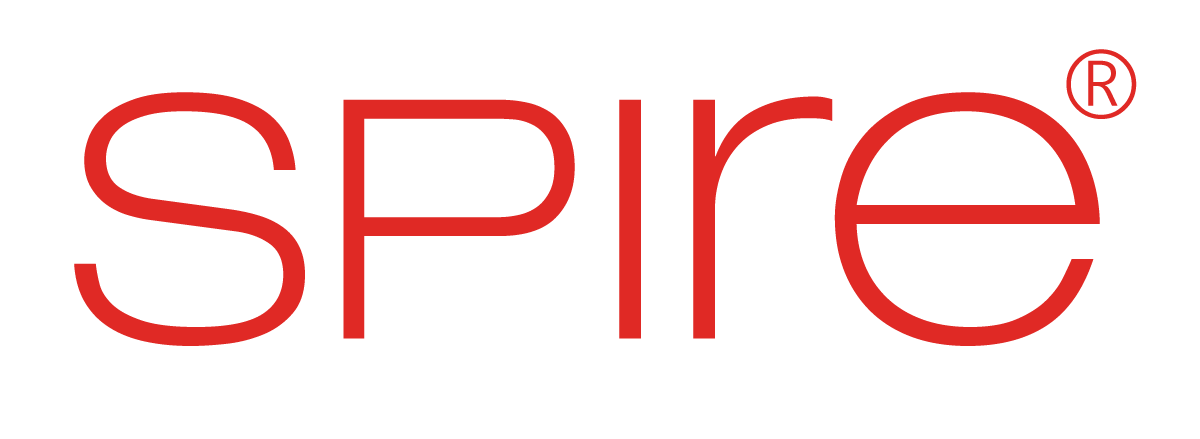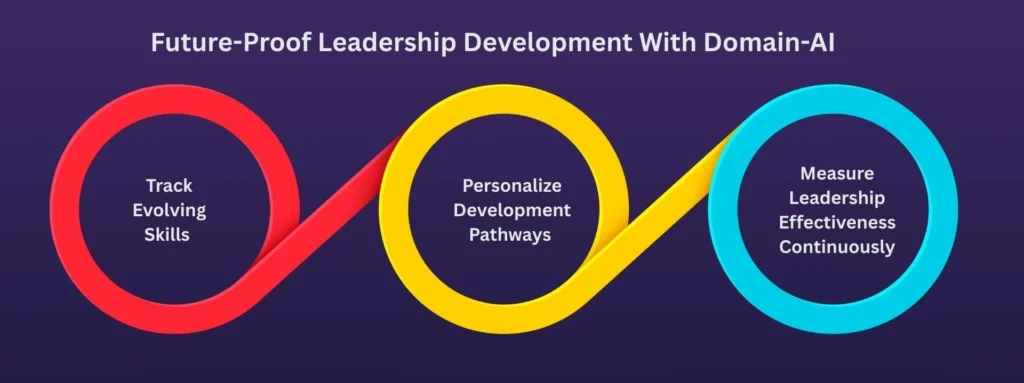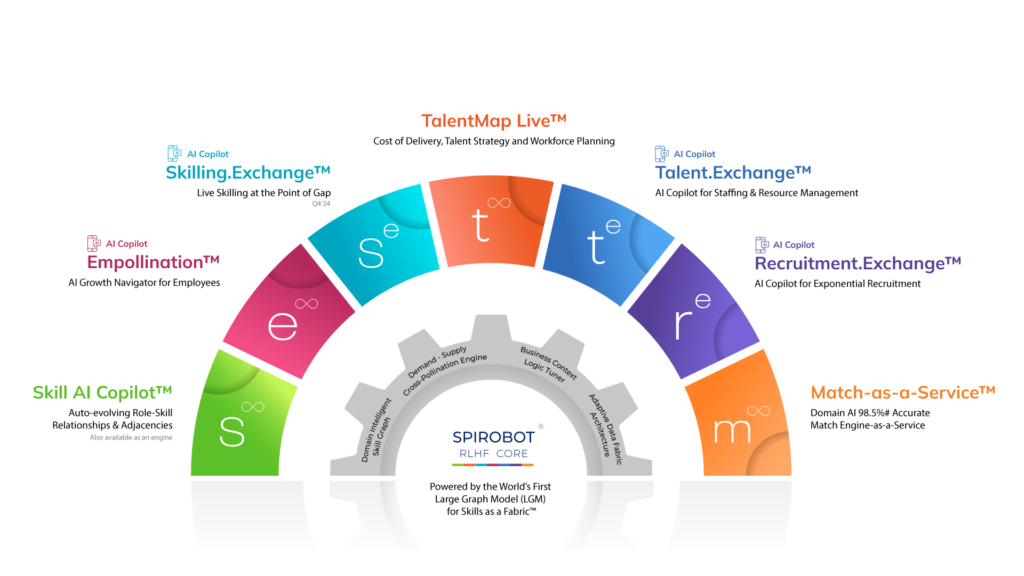The ability to identify and cultivate future leaders remains one of the most pressing challenges for organizations. Traditional leadership development frameworks have long emphasized tenure, hierarchical progression, and subjective assessments. However, as organizations adopt more agile and skill-centric talent strategies, leadership identification must shift towards a competency-driven approach.
Organizations that prioritize skills as the foundation of leadership development create a more objective, scalable, and data-backed method for talent advancement. Artificial intelligence (Domain-Intelligent AI) in leadership development plays a transformative role by analyzing skill evolution, identifying leadership potential, and delivering personalized development pathways.
With Domain-Intelligent AI-driven insights, HR and talent leaders can move beyond static succession planning and embrace a dynamic, skills-based leadership pipeline.
The Shift from Tenure to Competency-Based Leadership Identification
Historically, leadership roles within organizations have often been reserved for individuals with considerable tenure or experience in the business. This model suggests that a long-standing employee, particularly one who has steadily climbed the hierarchical ladder, should be a natural choice for leadership. While experience undoubtedly plays a vital role in leadership, its value alone is not sufficient for identifying future leaders.
The nature of business challenges has evolved, requiring a broader and more dynamic skill set from leaders. Today’s leaders need to excel in areas like innovation, agility, collaboration, and technology integration, which are not necessarily tied to years of service or previous titles. Instead, the focus should shift toward identifying competencies and behaviors that demonstrate leadership potential—qualities that AI can assess in real time, based on an employee’s evolving skill set and performance.
Domain-AI offers an intelligent and scalable solution for identifying leadership potential more objectively, evaluating skills rather than just experience. This data-driven, competency-focused approach ensures that emerging leaders are selected based on their current capabilities and readiness for future challenges, not merely past roles.
AI-Driven Skill Mapping for Leadership Potential
AI’s transformative impact on leadership development stems largely from its ability to provide dynamic, Domain-Intelligent skill mapping. This involves leveraging AI tools to identify employees’ current skills, assess their trajectory for future skill growth, and predict leadership potential with far more accuracy than traditional methods.
Domain-Intelligent AI can go beyond generic skill tracking; with Large Graph Model (LGM) for Skills that can contextualize skill development within specific organizational needs. For example, Domain-AI can assess how a particular employee’s evolving capabilities align with the leadership demands of a specific department or future organizational goals. This ensures that the leadership pipeline is both highly targeted and aligned with the future strategic direction of the company.
- Analyze Real-Time Skill Data: Continuously collect and evaluate data, assessing employees’ current skill levels, learning patterns, and their performance in leadership-related activities. For instance, Domain-AI can evaluate an employee’s adaptability, decision-making skills, and interpersonal effectiveness, which are all crucial leadership traits.
- Predict Leadership Trajectories: By examining historical data such as job progression, the completion of strategic projects, and the acquisition of new skills, Domain-AI can predict which employees are most likely to succeed in leadership roles in the near future.
- Reduce Bias in Leadership Selection: A major advantage of Domain-AI is its ability to eliminate bias in the leadership identification process. AI-powered frameworks use objective metrics, ensuring that all candidates, regardless of background, gender, or tenure, are evaluated solely on their merit, which is crucial for improving diversity and inclusivity in leadership pipelines.
The result is a highly accurate, real-time mapping of leadership potential that provides HR and talent leaders with a clearer understanding of which employees possess the skills necessary for leadership roles.
Personalized Leadership Development With Domain-AI
Once potential leaders are identified, it’s imperative to provide them with personalized development pathways. This is where AI-driven solutions truly shine. Instead of relying on generic, one-size-fits-all leadership training programs, Domain-AI tailors learning experiences to meet the specific needs of each potential leader, optimizing their development for future roles.
- Adaptive Learning: LGM for Skills assesses an employee’s learning style, skill gaps, and overall career aspirations to create a bespoke learning journey. These personalized development plans can incorporate a mix of self-paced e-learning modules, live learning sessions, and experiential learning or cross-functional projects.
- Real-Time Feedback: With the help of AI-powered tools, leaders-in-the-making receive continuous, actionable feedback, ensuring they can adapt and improve their leadership competencies in real time. This feedback loop allows for precise adjustments to their development strategies, enhancing engagement and effectiveness.
- Skill Gap Analysis: Domain-AI evaluates the differences between the skills required for a specific leadership role and the employee’s current skill set. This allows organizations to focus on closing those gaps through targeted learning interventions, thereby accelerating the readiness of employees for leadership positions.
This personalized approach not only promotes better leadership development but also increases employee engagement. According to LinkedIn’s 2023 Workplace Learning Report, employees who feel that their employer invests in their growth are 94% more likely to stay with the organization. Personalized, AI-enhanced learning pathways ensure that potential leaders are not only prepared but are more likely to remain with the company, reducing turnover and enhancing long-term leadership stability.
Measuring Leadership Success With AI-Enabled Analytics
AI-powered analytics allow organizations to continually assess the effectiveness of leadership development programs. With a focus on data-driven insights, HR leaders can monitor leadership performance and ensure the ongoing alignment of leadership efforts with organizational goals.
- Skill Acquisition Rate: Domain-AI can track the speed at which an employee acquires critical leadership skills, offering insights into how quickly individuals are progressing along their leadership development journey. Faster skill acquisition rates often indicate strong leadership potential, helping HR leaders pinpoint those who are ready for greater responsibility.
- Leadership Impact Score: AI-based performance assessments aggregate data from multiple sources (such as employee feedback, team performance, and leadership activities) to provide a comprehensive evaluation of an employee’s leadership effectiveness. This real-time insight enables HR leaders to determine which potential leaders are making the most significant impact on their teams and the organization.
- Retention: Organizations that successfully implement AI-driven leadership development programs see higher rates of internal promotions and longer employee retention, critical factors for maintaining a robust leadership pipeline.
This ongoing measurement ensures that leadership programs remain agile and effective, continuously refining development strategies to meet organizational needs.
Future-Proofing Leadership Development With Domain-AI
Domain-Intelligent AI in leadership development is not just an enhancement, it is an imperative for organizations that want to build a future-ready, resilient leadership pipeline. The agility of Domain-Intelligent AI enables HR leaders to ensure that their leadership strategies are adaptable, data-driven, and perfectly aligned with evolving organizational goals.
By leveraging advanced AI-powered solutions, companies can remain proactive in their approach to leadership development, building a leadership pipeline that is both robust and capable of handling future challenges.
Unlike traditional models, which often rely on static data, Domain-Intelligent AI continuously tracks and analyzes skills, behaviors, and performance, offering dynamic insights into the leadership potential of employees. This ongoing assessment means that organizations can identify emerging leadership talent early on, ensuring that they are well-prepared for transitions and that leadership gaps are quickly addressed.
The future-proofing capabilities of Domain-Intelligent AI come from its ability to,
- Track Evolving Skills: As industries and technologies evolve, so do the skills required for effective leadership. Domain-Intelligent AI tracks these changes and ensures that leadership development is always in sync with current trends.
- Personalize Development Pathways: Domain-AI can tailor individual learning plans, adapting as the employee grows in both skills and leadership qualities. This ensures that potential leaders are continuously engaged and supported through targeted learning.
- Measure Leadership Effectiveness Continuously: With AI-driven metrics, leadership effectiveness is assessed regularly, providing real-time feedback and helping to course-correct development programs as needed.
Steps for HR and Talent Leaders to Implement Domain-Intelligent AI-Driven Leadership Development.
Step 1: Adopt Domain-Intelligent AI-Powered Skill Analytics
Integrate tools that dynamically track evolving skill sets, identify leadership potential, and anticipate future needs.
Step 2: Develop Personalized Learning Pathways
Leverage adaptive learning platforms powered by Domain-Intelligent AI to craft personalized leadership development programs tailored to individual needs and organizational goals.
Step 3: Leverage Domain-Intelligent AI for Bias-Free Selection
Use data-driven assessments that ensure diversity, equality, and inclusivity in leadership development.
Step 4: Monitor Leadership Effectiveness with Domain-Intelligent AI Metrics
Regularly evaluate the progress and impact of leadership training through advanced AI analytics, adjusting programs for continuous improvement.
By adopting Domain-Intelligent AI to enhance leadership development, HR leaders can proactively address future challenges, maintain competitive advantage, and cultivate a leadership team that is agile, competent, and ready for the future.
In Conclusion
AI-driven leadership development represents a paradigm shift in how organizations cultivate and sustain leadership talent. By focusing on skills rather than tenure, AI provides an unbiased, data-backed framework that identifies high-potential leaders based on their evolving competencies. Personalized development pathways, combined with real-time performance insights, help organizations refine their leadership pipeline while maximizing engagement and retention.
For HR leaders, leveraging AI in leadership development is not merely a best practice, it’s an essential strategy to ensure that the organization remains competitive, resilient, and ready for the challenges of tomorrow.







